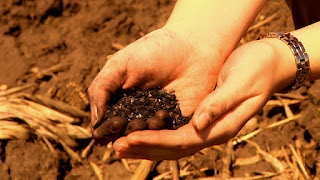'Green-mix' concrete: An environmentally friendly building material
Complementing the
Government of Malaysia's efforts to encourage the use of environmentally
friendly materials in the construction of green buildings, researchers from the
faculty of civil engineering, University Technology MARA in Malaysia have
successfully developed an environment friendly version of building concrete
called green-mix concrete.
When it comes to building structures,
developers and contractors have the advantage of choosing from a variety of
materials to use. Generally, the decision on material choice depends on several
factors including cost and performance for specific applications.
Due to growing interest in sustainable development and various
incentives provided by the Government of Malaysia, the key players in the
construction industry are motivated more than ever before to use materials that
are sustainable or in such a way that their environmental impact is minimal.
In 2009, the Malaysian government launched the green building
index (GBI) to encourage the construction of buildings using green technology,
and introduced incentives for owners to obtain the GBI certificate for new or
existing buildings. There have also been efforts to reduce air pollution and
concrete has an important role to play because a significant amount of the world's
carbon emissions stem from cement and concrete production. Therefore, it is
important to develop green concrete that can be used in buildings and
structures.
In recent years, the application of green concrete has become
popular in many countries including Malaysia. The innovative concrete can be
produced using waste materials as one of its components. Green concrete can
also be developed using various production processes that are not detrimental
to the environment. The criteria for green concrete is that the materials used
for making it should be sourced from sustainable or "green materials"
rather than non-sustainable resources. The use of recycled or waste materials
can be considered sustainable as they can lower costs and raw materials as well
as reduce landfills.
In this project, researchers at Universiti Teknologi MARA
introduced an innovative green concrete called "green-mix concrete"
that is designed and manufactured using conventional materials but partially
replaced with suitable waste and recycled materials to achieve acceptable
performance, economics and sustainability. Green concrete is made of new raw
materials -- namely fly ash, recycled concrete aggregates and aluminium can
fibres. Fly ash is a waste product from coal power plants and is commonly
disposed of in ponds and sent to landfills. Through research it was discovered
that fly ash has the potential to replace cement, a material with large
environmental impacts due to air pollution from the cement plants. In order to
reduce consumption of raw materials and to minimise the wastes generated from
demolished concrete structures, crushed concrete can be reused as aggregates.
Aluminium cans were used because they can be easily processed into chopped
fibres and used as reinforcement in concrete.
To produce this new concrete requires technical expertise such
as new concrete mix design, new raw materials and new knowledge of green
concrete properties. Not only is this newly developed green concrete
environmentally friendly, it is also cost-effective as a result of optimized
material proportions from our new concrete mix design. In our investigation,
the new concrete can achieve an increase in strength of up to 30% compared to
normal concrete.
In conclusion, our green concrete has the following benefits:
- designed for strength and performance during service-life of
buildings or structures;
- has lower cement/carbon footprint per unit of concrete
produced;
- has potential for commercialization by providing developers
and contractors with an alternative concrete that is environmental-friendly, in
line with the National Green Technology Policy.




Comments
Post a Comment